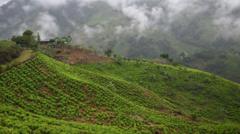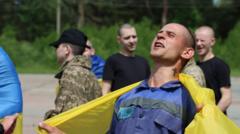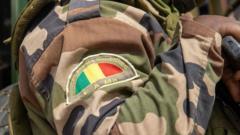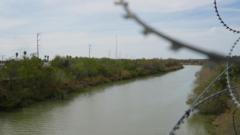Colombia's defense minister confirmed that 57 soldiers were freed after being seized by locals in the Cauca region, linked to a notorious rebel group, with no shots fired during the operation.
Colombian Army Successfully Rescues 57 Soldiers Captured by Locals
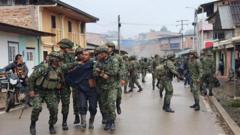
Colombian Army Successfully Rescues 57 Soldiers Captured by Locals
In a military operation dubbed "Operation Justice," Colombian authorities free soldiers held captive in a remote region.
In a dramatic military operation, Colombian authorities successfully rescued 57 soldiers who had been held captive by local residents in the mountainous Cauca region since the weekend. Defense Minister Pedro Sánchez announced the conclusion of the operation, which he referred to as "Operation Justice," noting that the rescue was executed without firing a single shot.
The soldiers were captured amid tensions stemming from the arrest of a suspected member of the EMC rebel group on Saturday. This group is notorious for its involvement in the cocaine trade, which significantly influences the livelihoods of the local population. Sánchez alleged that the order for the soldiers' kidnapping came directly from EMC leaders, pointing to the group's influence in the area.
As the soldiers prepared to airlift the arrested suspect, they found themselves surrounded by a crowd exceeding 100 locals. In a concerning escalation, a second military unit was detained by an even larger gathering the following day, as stated by General Erick Rodríguez of the Colombian army.
Historically, when similar incidents occurred, negotiations with humanitarian groups usually facilitated the swift release of captured soldiers. However, in this instance, the captors were unresponsive to intermediaries, prompting military officials to deploy reinforcements to the scene. The additional troops facilitated the apprehension of 20 individuals believed to be involved in the hostage situation.
The military reports reveal that more than 90% of the locals depend on coca cultivation, which is crucial for cocaine production. Consequently, the military's presence in the region is frequently perceived as a threat, leading to ongoing challenges with various armed groups that extort local farmers and partake in illegal activities.
The soldiers were captured amid tensions stemming from the arrest of a suspected member of the EMC rebel group on Saturday. This group is notorious for its involvement in the cocaine trade, which significantly influences the livelihoods of the local population. Sánchez alleged that the order for the soldiers' kidnapping came directly from EMC leaders, pointing to the group's influence in the area.
As the soldiers prepared to airlift the arrested suspect, they found themselves surrounded by a crowd exceeding 100 locals. In a concerning escalation, a second military unit was detained by an even larger gathering the following day, as stated by General Erick Rodríguez of the Colombian army.
Historically, when similar incidents occurred, negotiations with humanitarian groups usually facilitated the swift release of captured soldiers. However, in this instance, the captors were unresponsive to intermediaries, prompting military officials to deploy reinforcements to the scene. The additional troops facilitated the apprehension of 20 individuals believed to be involved in the hostage situation.
The military reports reveal that more than 90% of the locals depend on coca cultivation, which is crucial for cocaine production. Consequently, the military's presence in the region is frequently perceived as a threat, leading to ongoing challenges with various armed groups that extort local farmers and partake in illegal activities.

